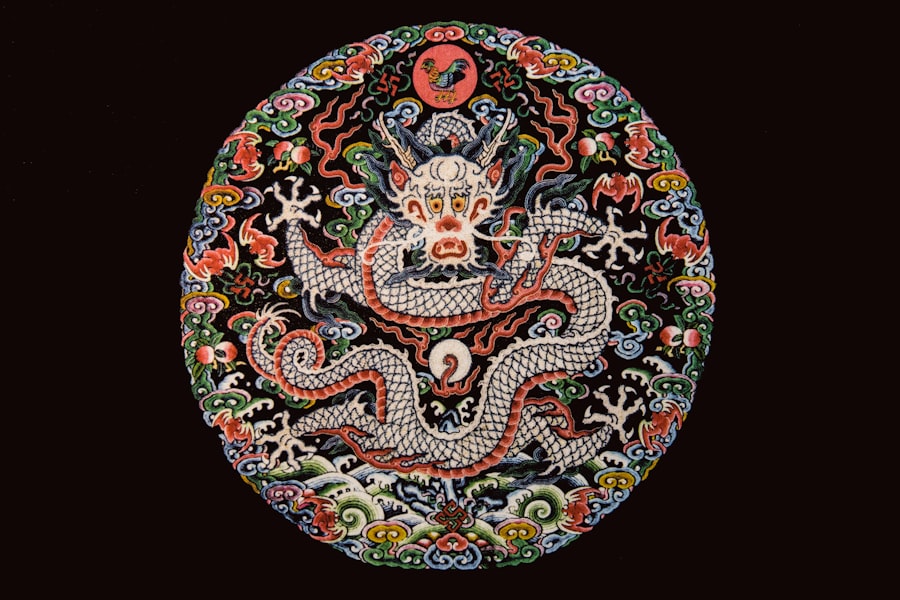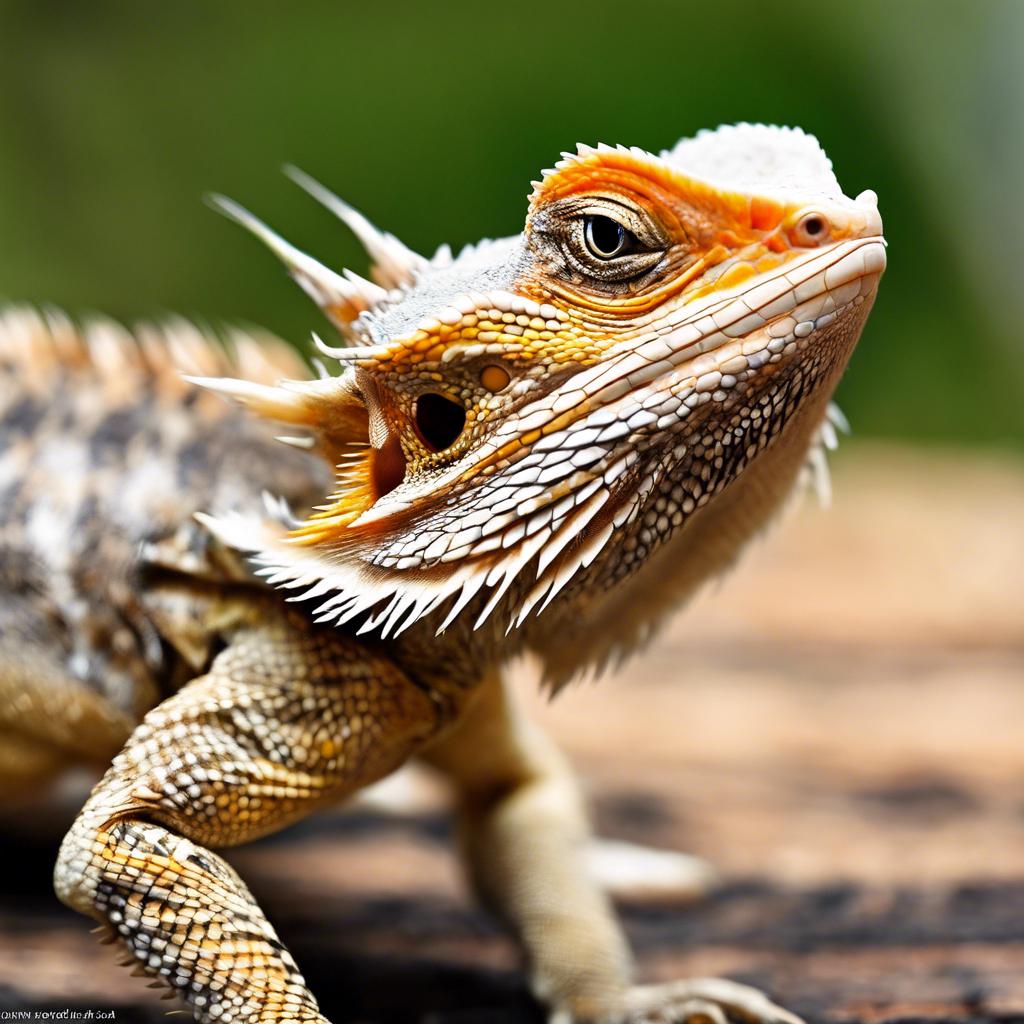Bearded dragons are popular reptile pets known for their unique appearance and docile nature. Native to Australia, these lizards have become increasingly popular as pets due to their low maintenance requirements and friendly demeanor. However, like any pet, it is important to provide them with proper nutrition to ensure their health and well-being.
Proper nutrition is crucial for bearded dragons as it directly impacts their growth, development, and overall health. A well-balanced diet is essential to meet their nutritional requirements and prevent any deficiencies or health issues. Feeding them a variety of foods is key to providing them with the necessary nutrients they need to thrive.
Key Takeaways
- Bearded dragons require a balanced diet that includes a variety of insects, vegetables, and fruits.
- Grasshoppers are a nutritious and beneficial addition to a bearded dragon's diet.
- Grasshoppers should be caught and prepared safely to avoid potential risks such as pesticide exposure.
- Bearded dragons should be fed grasshoppers in moderation, typically once or twice a week.
- Alternatives to grasshoppers include crickets, mealworms, and other insects that are safe for bearded dragons to consume.
Nutritional Requirements of Bearded Dragons
Bearded dragons are omnivores, meaning they eat both plant matter and insects. Their diet should consist of a variety of vegetables, fruits, and insects to ensure they receive all the essential nutrients they need. Vegetables such as collard greens, kale, and squash provide important vitamins and minerals, while fruits like berries and melons offer natural sugars and antioxidants.
In addition to plant matter, bearded dragons also require a source of protein in the form of insects. Crickets, mealworms, and dubia roaches are commonly fed to bearded dragons as they are readily available and provide a good source of protein. However, it is important to ensure that the insects are gut-loaded before feeding them to the bearded dragon. Gut-loading involves feeding the insects a nutritious diet before offering them to the lizard, ensuring that the nutrients are passed on to the bearded dragon.
Benefits of Feeding Bearded Dragons Grasshoppers
Grasshoppers are an excellent addition to a bearded dragon's diet due to their high nutritional value. They are rich in protein, which is essential for growth and muscle development in bearded dragons. Grasshoppers also contain important vitamins and minerals such as calcium, which is crucial for bone health and preventing metabolic bone disease.
Feeding grasshoppers to bearded dragons also adds variety to their diet. Offering a diverse range of foods helps prevent boredom and ensures that the bearded dragon receives a wide range of nutrients. By incorporating grasshoppers into their diet, you can provide your bearded dragon with a more natural and varied feeding experience.
How to Safely Catch and Prepare Grasshoppers for Bearded Dragons
Catching grasshoppers for your bearded dragon can be an enjoyable and rewarding experience. However, it is important to do so safely and responsibly. When catching grasshoppers, avoid using pesticides or insecticides as these can be harmful to your bearded dragon. Instead, opt for organic or pesticide-free areas to collect grasshoppers.
To catch grasshoppers, you can use a net or simply catch them by hand. Be gentle when handling them to avoid injuring the grasshopper or yourself. It is also important to ensure that the grasshoppers are of an appropriate size for your bearded dragon. Avoid feeding them large grasshoppers that may be difficult for them to consume.
Before feeding the grasshoppers to your bearded dragon, it is important to clean and prepare them properly. Remove any dirt or debris from the grasshoppers by rinsing them with water. You can also gut-load the grasshoppers by feeding them nutritious vegetables or commercial gut-loading products before offering them to your bearded dragon.
Frequency of Feeding Bearded Dragons Grasshoppers
When it comes to feeding bearded dragons grasshoppers, moderation is key. While grasshoppers offer many nutritional benefits, they should not make up the entirety of a bearded dragon's diet. It is recommended to feed grasshoppers as a treat or supplement to their regular diet.
A good rule of thumb is to offer grasshoppers to your bearded dragon once or twice a week. This allows them to enjoy the nutritional benefits of grasshoppers without overloading their diet with too much protein. It is important to balance the grasshoppers with other foods such as vegetables and fruits to ensure a well-rounded diet.
Potential Risks of Feeding Bearded Dragons Grasshoppers

While grasshoppers can be a nutritious addition to a bearded dragon's diet, there are some potential risks to be aware of. One risk is the possibility of parasites or diseases being transmitted from the grasshoppers to the bearded dragon. To minimize this risk, it is important to ensure that the grasshoppers are from a clean and pesticide-free environment.
Another potential risk is the choking hazard that large grasshoppers may pose to bearded dragons. It is important to offer appropriately sized grasshoppers that can be easily consumed by your bearded dragon. If in doubt, it is better to err on the side of caution and choose smaller grasshoppers.
Alternatives to Grasshoppers for Bearded Dragons
If you are unable to find or catch grasshoppers for your bearded dragon, there are several other insects and foods that can be fed as alternatives. Crickets, mealworms, and dubia roaches are readily available and provide a good source of protein for bearded dragons. These insects can be gut-loaded before feeding them to your bearded dragon to enhance their nutritional value.
In addition to insects, vegetables such as collard greens, kale, and squash can be offered as a source of nutrients for your bearded dragon. Fruits like berries and melons can also be given in moderation as a treat. It is important to provide a variety of foods to ensure that your bearded dragon receives all the necessary nutrients.
Monitoring Bearded Dragons After Feeding Grasshoppers
After feeding your bearded dragon grasshoppers, it is important to monitor their health and behavior. A healthy bearded dragon will have a good appetite, be active, and have regular bowel movements. If you notice any changes in their behavior or appetite, it may be a sign of an underlying health issue.
It is also important to monitor their weight and body condition. Bearded dragons should have a healthy body weight and not be overweight or underweight. Regularly weigh your bearded dragon and consult with a veterinarian if you have any concerns about their weight or overall health.
Common Mistakes When Feeding Bearded Dragons Grasshoppers
When feeding bearded dragons grasshoppers, there are some common mistakes that should be avoided. One common mistake is feeding them too many grasshoppers, which can lead to an imbalance in their diet and potential health issues. It is important to offer grasshoppers in moderation and balance them with other foods.
Another mistake is not properly preparing the grasshoppers before feeding them to your bearded dragon. It is important to clean the grasshoppers and remove any dirt or debris. Gut-loading the grasshoppers before offering them to your bearded dragon also ensures that they receive the maximum nutritional benefit.
The Role of Grasshoppers in a Bearded Dragon's Diet
In conclusion, grasshoppers can be a beneficial addition to a bearded dragon's diet when fed in moderation and prepared properly. They offer a high source of protein and important vitamins and minerals that contribute to the overall health and well-being of the bearded dragon. However, it is important to balance the grasshoppers with other foods to ensure a well-rounded diet.
Feeding your bearded dragon a variety of foods is crucial to meet their nutritional requirements and prevent any deficiencies or health issues. By incorporating grasshoppers into their diet, you can provide them with a more natural and varied feeding experience. Remember to monitor their health and behavior after feeding them grasshoppers and consult with a veterinarian if you have any concerns. With proper care and nutrition, your bearded dragon can thrive and live a long, healthy life.
If you're wondering whether bearded dragons can eat grasshoppers, you'll find all the answers in this informative article from Reptile Wizard. They provide valuable insights into the dietary habits of bearded dragons and discuss the benefits and potential risks of feeding them grasshoppers. To learn more about this topic, check out their article on can bearded dragon eat grasshoppers. While you're there, make sure to read their disclaimer and terms and conditions to ensure you have a comprehensive understanding of the information provided.
FAQs
What is a bearded dragon?
A bearded dragon is a type of lizard that is commonly kept as a pet. They are native to Australia and are known for their distinctive spiny “beard” under their chin.
Can bearded dragons eat grasshoppers?
Yes, bearded dragons can eat grasshoppers. In fact, they are a good source of protein for these lizards.
Are grasshoppers a healthy food for bearded dragons?
Yes, grasshoppers are a healthy food for bearded dragons. They are high in protein and other nutrients that are important for the health of these lizards.
How should I prepare grasshoppers for my bearded dragon?
It is important to make sure that any grasshoppers you feed your bearded dragon are gut-loaded, meaning they have been fed a nutritious diet before being fed to your lizard. You should also make sure that the grasshoppers are the appropriate size for your bearded dragon and that they are not too large to be safely swallowed.
Can feeding my bearded dragon too many grasshoppers be harmful?
Feeding your bearded dragon too many grasshoppers can lead to an imbalance in their diet, as they also need other types of food such as vegetables and fruits. Additionally, feeding your bearded dragon wild-caught grasshoppers can be risky, as they may have been exposed to pesticides or other harmful substances. It is best to feed your bearded dragon commercially-raised grasshoppers or other insects that are safe for them to eat.

